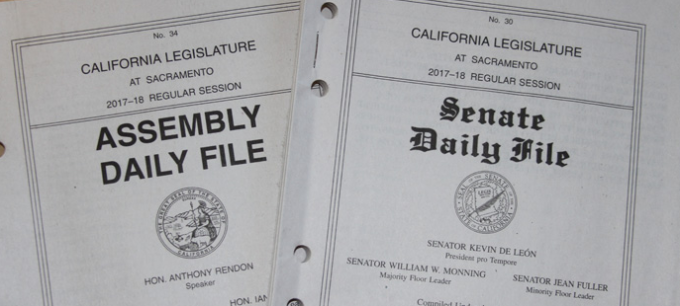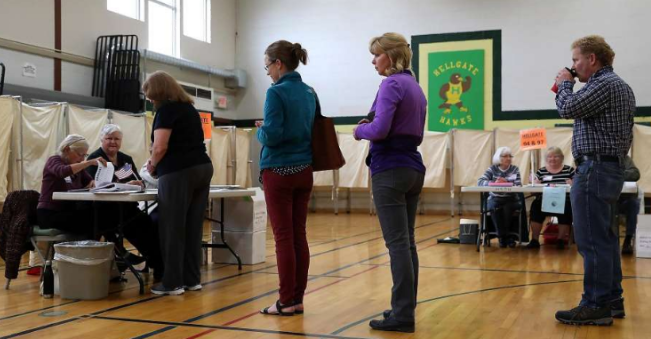
By Chris Micheli
An important role for the capital lawyer in state government is drafting bills and amendments. There is an art to drafting bills that comes easily for some, but is difficult for others. The critical factor is whether the bill’s language is clear enough to accomplish the intent of the bill’s author and sponsor and also whether the bill language can be understood by third parties that were not privy to all of the legislative discussions involving the bill language.
California legislative rules require all bills and amendments to be “in Legislative Counsel form” prior to the bill or amendment being processed by either the Senate Desk or the Assembly Desk. As such, regardless of whether another party does the initial drafting of a bill or amendment, attorneys with the Office of the Legislative Counsel ultimately will do the formal drafting and may tweak some language that has previously been written in order to keep the proposed statutory language consistent with other code sections. The Legislative Counsel attorneys also suggest where to place a new law in the code books.
There are numerous California Government Code Sections that are relevant to bill and amendment drafting, including those provisions related to the Legislative Counsel, Enactment of Statutes and Operation of Statutes. The Office of the Legislative Counsel is keenly aware of the types of measures, bills, “chaptering out” amendments, effective dates, etc., as well as the general rules of statutory interpretation to assist them in their drafting duties.
On occasion, however, a legislator may direct the Legislative Counsel Deputy to not make any changes to the bill language because it was carefully crafted to address the desires of interested parties, such as when a compromise on bill language was achieved. As a result, legislators and their staff often work closely with a Deputy on their desired bill language throughout the legislative process. On some drafting requests, the legislator or sponsor knows exactly the bill or amendment language they desire.
In other instances, the drafting request to the Legislative Counsel Deputy may be very broad, such as to “draft a bill that does ___.” Thereafter, the Deputy drafts a bill from scratch. In either instance, with a general request or a specific one, the attorneys in the Office of the Legislative Counsel utilize rules of statutory construction and other guidelines for drafting bills and amendments to those bills.
The initial question in drafting a new bill is whether this bill is proposing a new statute or is amending or repealing an existing statute. For a bill creating a new statute, an initial issue is what code will the bill be in? There are 29 codes comprising California statutes. The next question is what section of the code should this bill be in? There are about 150,000 statutes and Legislative Counsel has to determine what section of the law to create or amend.
Although the Legislative Counsel ultimately drafts the bill language (on average, over 8,000 requests per session) and amendments to those bills (on average, over 10,000 requests per session), skilled lawyers should be able to craft bill and amendment language themselves. It is a very valuable skill to possess. Moreover, it provides keen insight into interpreting statutes after an attorney has experience writing statutory language. Most start with “plain English,” although there certainly are key words and phrases that Legislative Counsel prefers to utilize.
In regards to amendments, the questions to ask as a bill drafter include: What should be changed from the existing bill language? What is the intent of the amendment? How could that intent best be accomplished by modifying the bill language?
The following are examples of the bills and amendments that are drafted by the Legislative Counsel’s Office:
Amending a section of code
Adding a section of code
Repealing a section of code
Adding a chapter of code
Adding multiple sections of code
Uncodified statutes
Intent language
Urgency clauses
Initiative statute
Special legislation
Bill making an appropriation
Bill imposing a local mandate
Concurrent resolution
Joint resolution
Constitutional amendment
Amending a bill
There are many options for drafting a bill as shown above. Those persons working on legislation are assisted by the Legislative Counsel attorneys who are well educated in drafting bills and amendments.
Chris Micheli is a Principal with the Sacramento governmental relations firm of Aprea & Micheli, Inc. He also serves as an Adjunct Professor at McGeorge School of Law in its Capital Lawyering Program.



























 There’s no way forward for Republicans. They’ve remained oblivious to the real issues in California and have become irrelevant to the education debate.
There’s no way forward for Republicans. They’ve remained oblivious to the real issues in California and have become irrelevant to the education debate.




















































 Turns out, drivers were right.
Turns out, drivers were right.













 Department of Police Accountability Interim Director Manuel Fortes, an attorney for the DPA since 2009, on May 12 was named interim director — effective July 1 — following the resignation of longtime Director Joyce Hicks.
Department of Police Accountability Interim Director Manuel Fortes, an attorney for the DPA since 2009, on May 12 was named interim director — effective July 1 — following the resignation of longtime Director Joyce Hicks.








 Rohrabacher has been known for years as one of Moscow’s biggest defenders in Washington and as a vocal opponent of U.S. economic sanctions against Russia.
Rohrabacher has been known for years as one of Moscow’s biggest defenders in Washington and as a vocal opponent of U.S. economic sanctions against Russia.